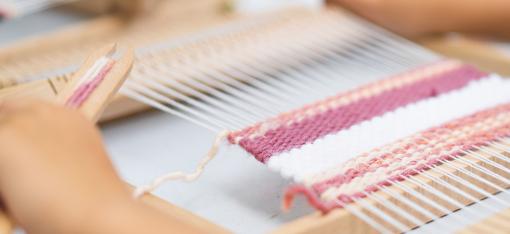
WEAVING
Weaving Yarns, Fibers Packs, Loom Kits, And Tools
Whether you’re an experienced weaver or a beginner, we have the yarns and supplies you need to weave a beautiful fabric. Find inspiration from our high-quality cotton, wool, linen, and other fibers.
We also carry handmade Weaving Looms in three different sizes. Each loom kit comes with a heddle bar, weaving shuttle, wooden weaving needle, and a tapestry bobbin so you can get started right away.
With GANXXET supplies and tools, you can create gorgeous fabrics for all sorts of projects!
376 products
FAQs
































